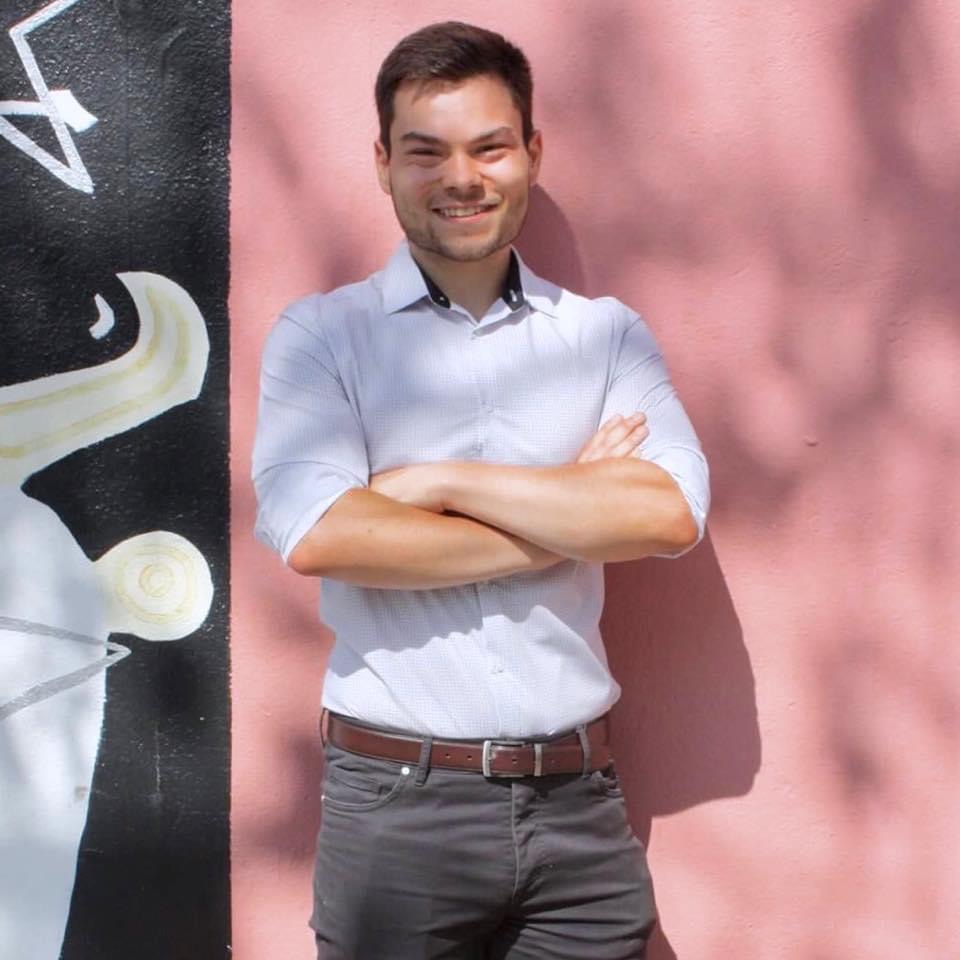
Ethan Tyo ’17, G’22 is featured in the New York Times and Seattle Times as he grows AlterNative
Growing up on the Mohawk reservation of Akwesasne, Ethan Tyo ’17 G’22 had no idea his land was poisoned. Despite the rich and long-established cultural traditions of the Mohawk people to plan, harvest, and prepare their food from the earth, Tyo never did that growing up. Instead, he and his community shopped at the Walmarts and fast-food chains not far from the reservation, not knowing why they did not fish or farm as their families used to.
As Tyo returned to Syracuse University to pursue his master’s in food studies, he learned the concept of food sovereignty — the access to culturally appropriate and nutritionally complete foods. But today, the ability to historically cultural food practices of fishing, hunting, and growing are lost on most reservations; and the resulting diet is often nutritionally inadequate.
Frequently reservations are built downstream from industrial cities and industrial plants where the resulting waste pollution renders the nearby soils and water sources unsuitable for agricultural production. In simpler terms, the land is poisonous, and the food grown from such land poisons its inhabitants.
To live on a poisonous land is unsuitable for any community, but it is particularly devastating for the American Indigenous communities. As tribal nations, they were forced to leave behind their lands that they grew their lives upon and create homes on lands that offered nothing. The tradition of tending to the earth and reaping its fruits is core in much of Indigenous culture. For example, the “Three Sisters” of squash, beans, and corn are highly symbolic in Indigenous culture for the traditional practices of planting the three in one field to agriculturally balance each other. The rich traditions and dignity of passing down cooking practices and recipes generationally have been stripped away.
Tyo hopes to restore food sovereignty to the tribal nations through The AlterNative Project. This project, inspired by the knowledge of Indigenous cultural practices Tyo only learned once he started formal university studies, aims to create widespread access to Indigenous knowledge and further scientific research within Indigenous communities.
“I know so much science and research but none of this is given back the people who need it – how do we create a space within academia to decolonize this information?” Tyo asked himself as he started The AlterNative Project.
Through The AlterNative Project, Tyo is working to create a world where knowledge about Indigenous history, culture, and current challenges is accessible across communities. He’s already started implementing this understanding of Indigenous culture here at Syracuse University, with a dedication in Pete’s Giving Garden to the Three Sisters for the Native Student Program in the Office of Multicultural Affairs- hoping to increase awareness of the importance of Indigenous food staples and provide space for experiences from our home communities for future generations of Indigenous students.
This year, he has also been named as Todd B. Rubin Diversity and Inclusion Scholar for the Blackstone LaunchPad at Syracuse University, where he will be using his role to bring more awareness to indigenous issues withing the entrepreneurial community.
Beyond Syracuse, Tyo’s work to further Indigenous knowledge is already making headway on a national level. In a piece for the New York Times, he shares background on Native American agriculture, and in a piece published for the New York Times Cooking and re-posted under his by-line in the Seattle Times, he creates an homage to the Three Sisters with a hearty bean patty brightened with a raspberry aioli.
In the future, Tyo envisions this education will lead to innovation and entrepreneurial solutions to the problems Indigenous communities face today; particularly creating sustainable solutions to counter problems like the poisoned water and plant sources on reservations. “We do not have preexisting things like manufacturing and industrial systems- you cannot just throw money into a community. The problem is we get a lot of federal aid but that mostly goes back off the reservation,” said Tyo.
Community innovation is the key to tackling Indigenous issues. This is the idea The AlterNative Project is built on. Tyo is overflowing with ideas for what this could look like. One is creating a network of Indigenous-inspired food stores across the nation, all filled with products sourced from Indigenous suppliers located on the reservations, ensuring that money flows back to the reservation.
Tyo’s work in increasing awareness of indigenous practices is a work that is not just his own but is rooted out of community gathering and sharing. To the Syracuse community, he encourages us to read, listen and reach out to understand what is happening in the Indigenous communities around us. For Tyo, one of the simplest ways to start learning is to come together through food, whether that is planting corn at Pete’s Giving Garden or trying a new recipe made from the Three Sisters.
Story by Claire Howard ’23, Global Fellow.